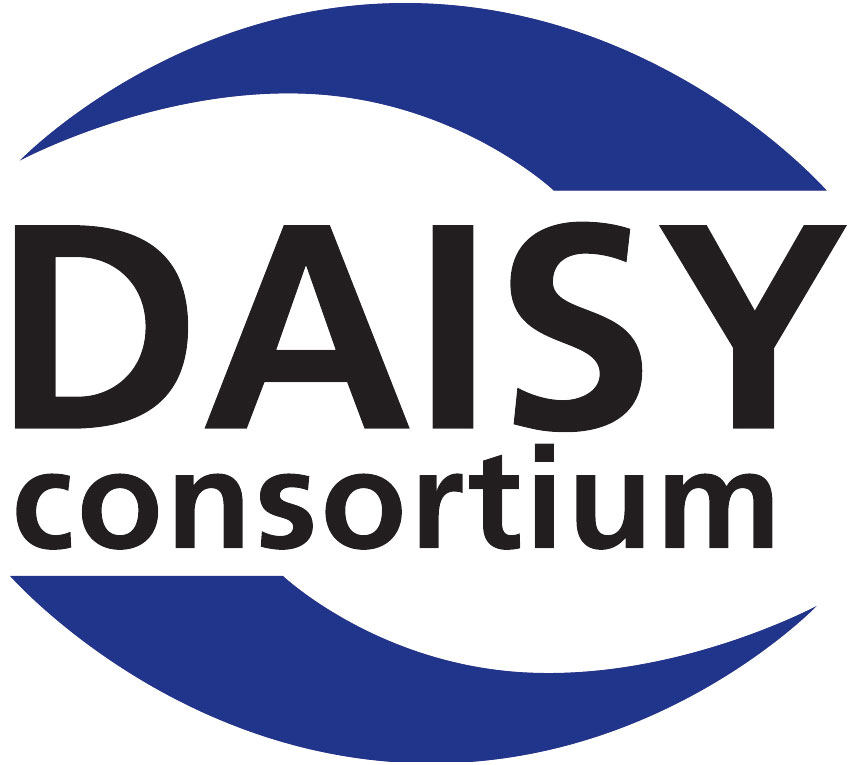DAISY—Structure Guidelines: Elements, Images
Information Object
Images
Definition
An image is a graphical object presented in a visual format.
Markup
The <img> element may be used alone to mark a single image. However, if there is an associated caption and/or a <prodnote> containing a description of the image, the <imggroup> tag should be used. The <imggroup> element provides a container for one or more <img>s and associated <caption>(s) and <prodnote>(s).
The <imggroup> element may contain:
multiple <img>s if they share a caption, with the ids of each <img> referenced by the imgref attribute on <caption>, e.g., <caption imgref=”id1 id2 …”>,
multiple <caption>s if several captions refer to a single <img>. When the <img> has id=”xxx”, each caption would have the same value for imgref, i.e., <caption imgref=”xxx”> (that is, each caption must be associated with a specific image using the ‘id’, ‘idref’ pair),
multiple <prodnote>s if different versions are needed for different media (e.g., large print, braille, or print). If several <prodnote>s refer to a single <img> with id=”xxx”, each prodnote would have the same <prodnote imgref=”xxx”> but each <prodnote> would have a different value for the showin attribute to control which media it is displayed in. See Information Object: Producer’s Note in Part2: Block Elements. If multiple <prodnote>s refer to a group of images, the imgref attribute would include the ids of all images in that group, e.g., <prodnote imgref=”id1 id2 id3 …”>.
The alt attribute is required for all <img>s and should contain a short description (often the caption) of the image.
Images may be tagged simply to mark their location in the book. The SMIL file(s) may be used to control the presentation of images. The requisite attributes to control image display from the markup in the textual content file are not provided in the DTBook DTD.
Syntax
<imggroup>…</imggroup>
<img>…</img>
<caption>…</caption>
<prodnote>…</prodnote>
Example 1
Markup for a single image and its associated <caption> and <prodnote>.
<imggroup id="imggrp_2">
<img id="img1_1" src="fig1_01.png" alt="By the way, Sam, as someday you'll be paying for my entitlements, I'd like to thank you in advance." />
<caption>By the way, Sam, as someday you'll be paying for my entitlements, I'd like to thank you in advance.</caption>
<prodnote render="optional" imgref="img1_1" id="pnote_p3" showin="blp">Reader's note: A cartoon shows a father in his easy chair looking at the newspaper.As his small son plays with a pull toy on the floor next to him, the father says to the boy, "By the way, Sam, as someday you'll be paying for my entitlements, I'd like to thank you in advance." End of note.
</prodnote>
</imggroup>
Example 2
Markup for two images that share a single <caption> and two <prodnote>s. The first <prodnote> will show only in a braille version of the textual content file, the second in either a print or large-print version.
<imggroup id="imggrp_43">
<img id="img_12" src="orion62.jpg" alt="Orion Nebula by visible and ultraviolet light" />
<img id="img_13" src="orion3.jpg" alt="Young stars in Orion Nebula" />
<caption imgref="img_12 img_13">Many young stars lie inside the mass of gas and dust that forms the Orion Nebula.</caption>
<prodnote render="optional" imgref="img_12 img_13" id="pnote_19" showin="bxx">Producer's Note: Two images of the Orion Nebula are shown, revealing many small points of light within the swirling mass of gas and dust that forms the nebula.
</prodnote>
<prodnote render="optional" imgref="img_12 img_13" id="pnote_20" showin="xlp">Producer's Note: The two images of the Orion Nebula shown above reveal many small points of light within the swirling mass of gas and dust that forms the nebula.
</prodnote>
</imggroup>
